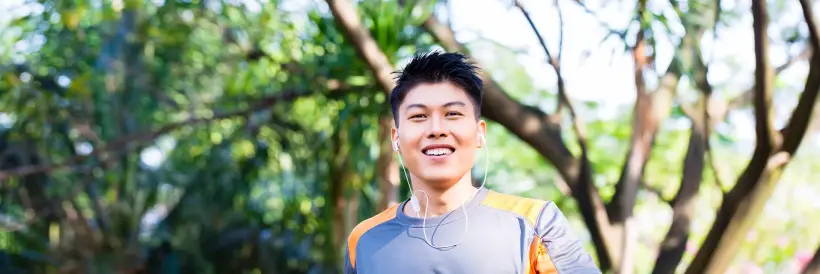
How to practice self-care with mindfulness
“Happiness is the highest form of health.” - Dalai Lama
Self-care has been making rounds in social media, especially when the pandemic situation hit. From daily meditation sessions to trying out random activities to feed your soul – we all have our own ways to take better care of ourselves. However, the idea of self-care is often misunderstood as a strict guideline towards achieving the best version of oneself rather than a healthy routine to improve their holistic wellbeing.
To celebrate Mental Health Awareness month, FWD Life Insurance mounted a mental and emotional stress management workshop for its employees in May, facilitated by Mindfulness At Play (MAP). The workshop focused on three pillars: practicing mindfulness to release tension; understanding the importance of sense of belonging; and cultivating a compassionate and grateful mindset.
MAP co-founder, Patrice-Pierre Ordacji, emphasized the importance of acknowledging stress or tension through mindfulness practice in order to effectively manage it. Mindfulness is defined as a practice of becoming more aware of our body, mind, feelings, and environment in the present moment. Mindfulness breathing is a good exercise for attention and emotion regulation, body awareness, and greater sense of self. It helps slow down our thinking process, therefore allowing us to gain better clarity and regain composure from stress in a matter of minutes.
The workshop also touched on Maslow’s Hierarchy of Needs, wherein sense of belonging is defined as an emotional need centered on gaining acceptance, attention, and support from others. However, sense of belonging should not be confused with “fitting in”, as the latter is a barrier to achieving belonging.
“Fitting in is assessing the situation and figuring out how you need to be in order to be accepted, while belonging doesn’t require you to change who you are, instead, it requires you to be who you are,” Patrice explains. While on some occasions one may be required to fit in, we need to find the right balance between that and belonging. As how award-winning life coach Ritu Bhasin said, “Never let fitting in take place of true belonging”.
Lastly, the workshop prompted FWD employees to practice self-compassion and gratitude to improve their wellbeing. “Most people have gotten [self-compassion] wrong because our culture says being hard on yourself is the way to be,” University of Texas associate professor, Dr. Kristen Neff said. Mindfulness is not just about paying attention but also how we pay attention. With self-compassion, we begin to cultivate kindness towards ourselves – we become more forgiving of our mistakes.
Patrice introduced “Ho’oponopono”, an ancient Hawaiian spiritual practice for reconciliation and forgiveness. Participants were asked to recite a 4-step mantra to begin healing and practice gratitude:
- Repentance (I’m sorry)
- Ask for forgiveness (Please forgive me)
- Gratitude (Thank you)
- Love (I love you).
The mantra also serves as a reminder to participants to count their blessings. With constant gratitude, we build a positive outlook on life, as well as become more appreciative with even the smallest of things. A colleague offered you coffee? Be thankful! A stranger gave you a compliment? Say thanks and return the compliment!
The four components of wellbeing — physical, mental and emotional, financial, and social — are interrelated. To be able to live the joy of wellbeing, we need to ensure that all aspects of our lives are taken care of. FWD Life Insurance advocates and helps its people and customers to achieve total wellbeing so they can live in joy and celebrate living.
Self-care does not have to be complicated. Total wellbeing is possible. Start now and celebrate living with mindfulness.
FWD is here to help!
Looking for a professional to support your personal mental wellness journey? Enjoy a 1-month free trial* on ThoughtFullChat (provided by FWD) which includes:
- Online self-serve tools (e.g., mood trackers, journaling, emotional health assessments and more)
- Evidence-based learning packs
- Unlimited text-based coaching with licensed mental health professionals for one month
Get your free 1-month trial* on ThoughtFullChat here.
*First come first serve basis. For more details, please refer to Mind Strength program page.




